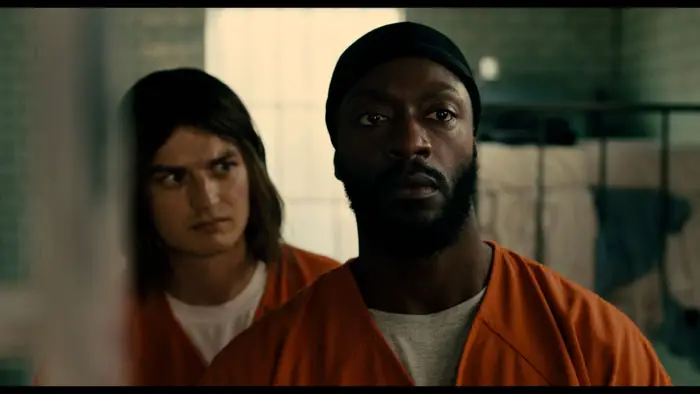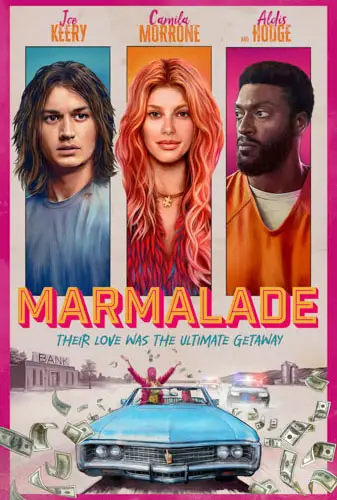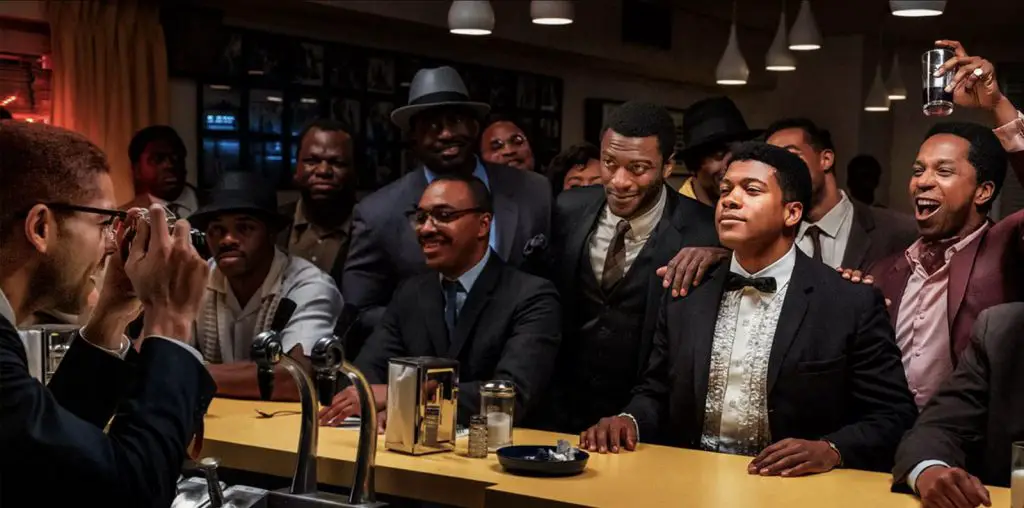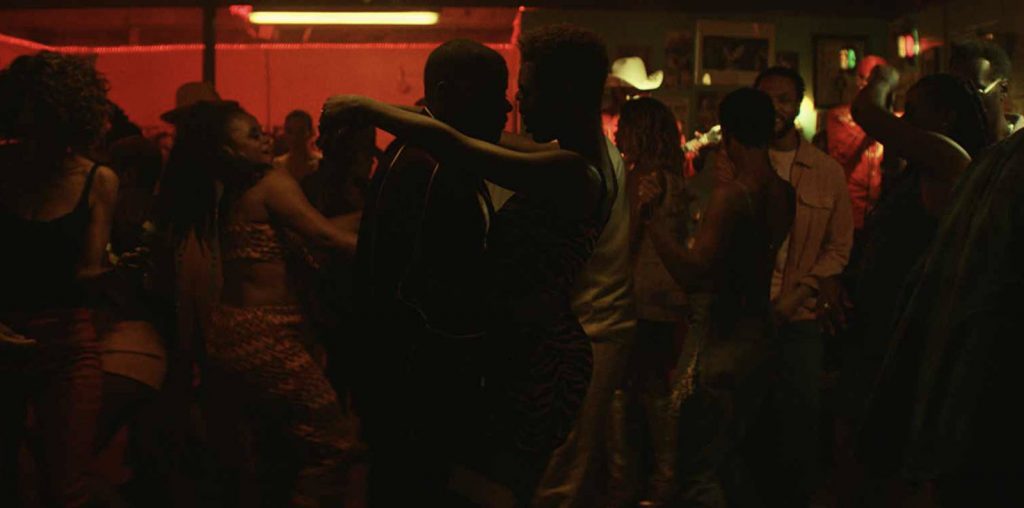
Lightly satirical, unexpectedly sweet, and steeped in small-town Southern twang, writer-director Keir O’Donnell’s Marmalade is 2/3 of a great film. Unfortunately, the last 1/3 switches gears – and that’s no spoiler alert, not really, at least – shredding everything that’s happened before and inviting the viewer to see the entire plot through a different lens. It doesn’t quite work, the threads rapidly disintegrating in front of our eyes. It’s difficult to stick the landing, and if only O’Donnell wrapped it all up, say, 20 minutes earlier, his cinematic offering could’ve been a bona fide gem. As it stands, it’s a flawed but wildly entertaining hybrid of crime, comedy, drama, and social commentary, with a game cast and a few genuine laughs.
Young simpleton Baron (Joe Kerry) gets locked up. His intimidating cellmate, Otis (Aldis Hodge), proudly lists numerous crimes to Baron, like sharing trophies. Yet Baron doesn’t beat around the bush either, unfazed by Otis’s bullish behavior. According to the kid, if Otis helps him escape, a quarter of a million dollars will be waiting for them. “I swear on my hair,” he adds, cementing the statement as truth (he loves his unflattering shaggy mop, which proves to be an obstacle on more than one occasion). A girl is waiting for Baron, the girl of his dreams. She’s all he cares about; Otis can keep all of the money. “She got golden titties or something?” Otis asks incredulously. “She’s my girl, to protect from whoever, whenever… whyever,” Baron states, the alpha male that he is.

“Sporting a hot pink faux-fur coat… and a free-spirited attitude verging on dementia, she was a ticking time bomb.”
And so he tells Otis his story, what brought him here, taking brief, hilarious detours that annoy the f**k out of his cellmate. Baron used to take care of his sick mama, got fired from his job at the post office – and just when things seemed utterly lost – the “red-hot like fire” Marmalade (Camila Morrone) burst into his life. Sporting a hot pink faux-fur coat, strawberry-blonde hair, and a free-spirited attitude verging on dementia, she was a ticking time bomb… which proved alluring to Baron. “Let’s rob a f*****g bank,” she exclaimed one day. Unable to resist her, he gradually succumbed, planning the robbery even as he felt terrible for betraying the town he adored so much, even as Marmalade began to display psychopathic tendencies.
Revealing the rest would be a major disservice to the film. Whether our (anti) heroes rob the bank and get away with it or not, it’s a ton of fun watching their dynamic unravel. Because Baron is so dim-witted, we think we see things he doesn’t (she’s using you, man!), but things aren’t as simple, thanks to O’Donnell’s sly direction and the all-in performances. The filmmaker relishes small moments – like the difference between “crocket,” “croquet,” and “crochet,” or Otis’s frustration at Baron’s lack of focus – as well as the big ones, like slamming audiences over the head with twist upon twist, in declining order of effectiveness.
The flamboyant mix of drama and comedy doesn’t always work. For instance, there’s a weird dance number in the middle that seems like a forced stylistic flourish. The cast almost saves such off-kilter detours. Joe Kerry plays his character straight, with impeccable comic timing. It’s a deceptively simple role that reveals layers as the narrative proceeds. He’s got bright things ahead of him. Morrone is a livewire, igniting the screen in every scene she’s in. “What am I, some fu**ing gun nut?” she asks, holding a giant pistol to her head. Hodge, in a somewhat rudimentary supporting role, has the saving grace of delivering some of the funniest lines in the film (“I’m inspired, motherfu**a!”).
A Gen-Z Bonnie and Clyde, Marmalade takes big, admirable swings, and while it misses some, it avoids the cardinal sin of being boring. “Their love was the ultimate getaway,” proclaims the poster’s tagline. So are films like this in these tumultuous times.

"…a Gen-Z Bonnie and Clyde"


